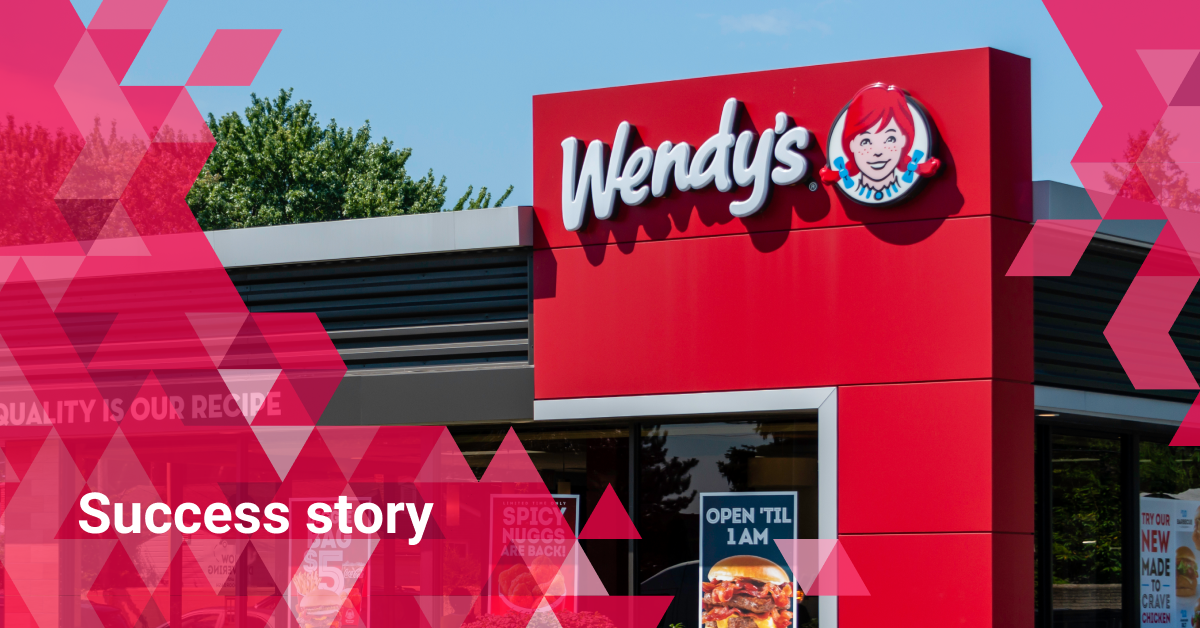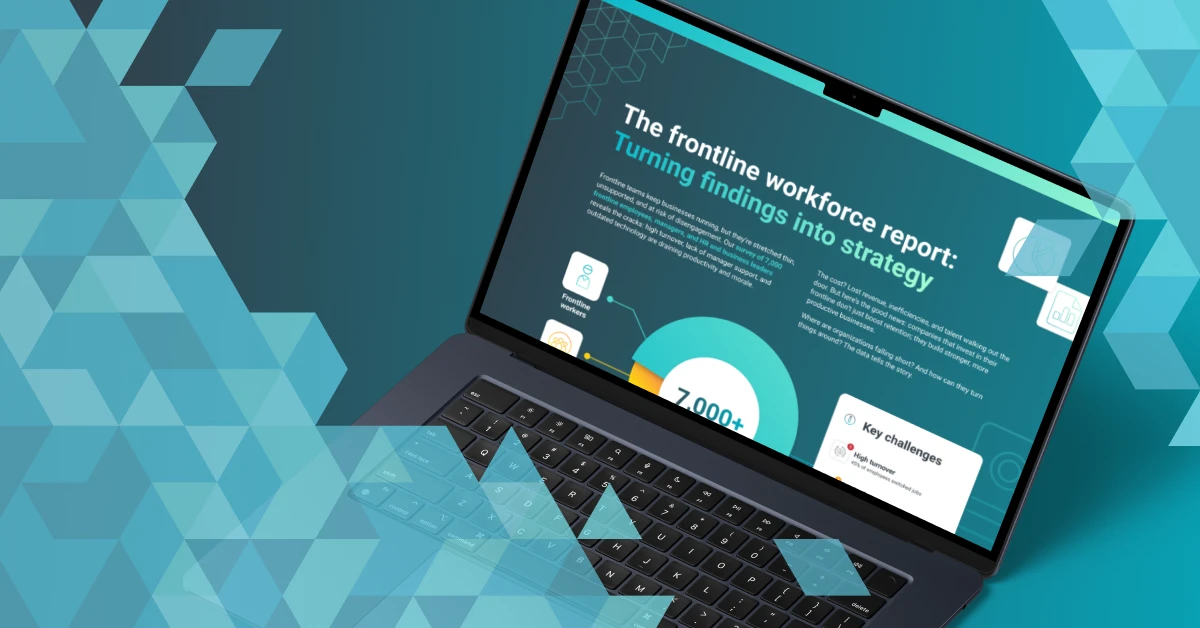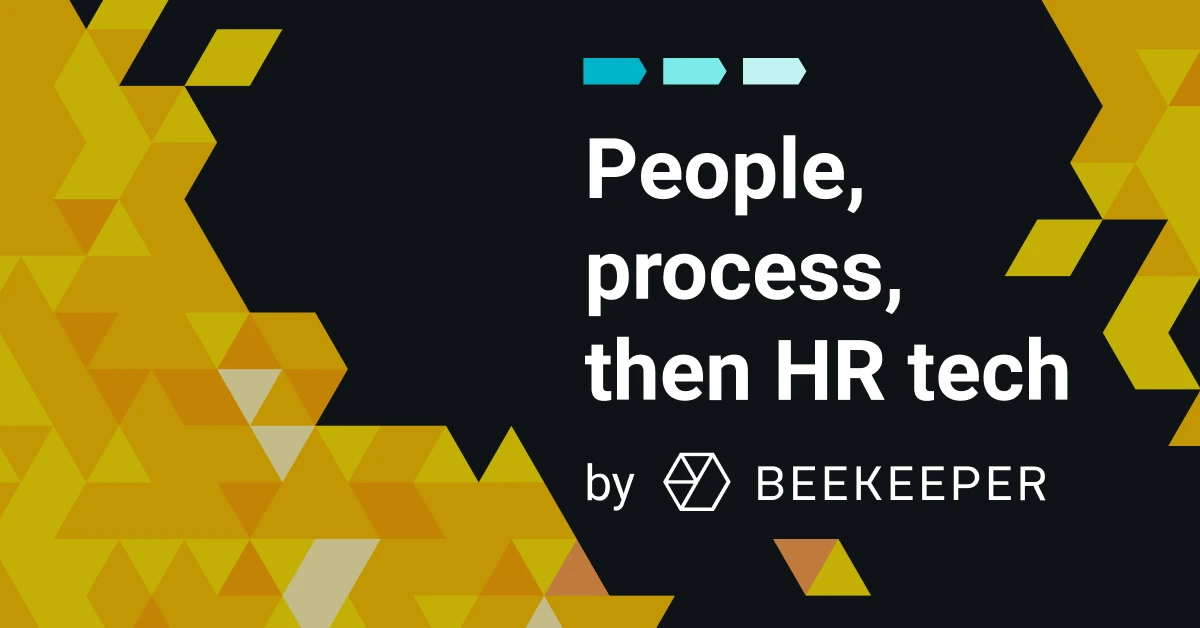The Future of Automation in HR | Top 4 Trends in Hospitality

Technology is becoming more relevant in the HR space. COVID-19 accelerated the need to adopt platforms that allow workers to collaborate and communicate remotely.
Now, HR leaders are focusing on finding tools that improve the recruiting process and streamline workforce management.
“Automation is impacting HR in every way possible.”
– Dan Waite, SH Hotels and Resorts
Automation is a significant part of the technology puzzle. The goal of automation in HR is to free employees and managers from tedious tasks and allow them to focus on problem-solving and complex decision-making.
At Beekeeper’s Frontline Future 2021 virtual summit, one session examined:
- What automation means for frontline workers
- How organizations can ensure that the money invested in HR automation is well spent
- How HR teams can get the most out of automation
The panelists for this session included:
- Andrada Paraschiv—VP of Hospitality, Beekeeper
- Dan Waite—VP of People Operations, SH Hotels and Resorts
Let’s look at the key points of their discussion to discover top trends in HR automation.
1. Keeping It Personable
One of the biggest misconceptions about automation is that it diminishes the human component in HR and makes the relationship between HR departments and employees less personable.
But when used properly, automation can actually enhance HR’s connection with employees because it frees up time and energy for developing more meaningful relationships.
SH Hotels and Resorts has incorporated automation into every step of the hiring and talent assessment process, from background checks and interviews to the onboarding process. Automation helps their HR teams adapt questions based on the candidate’s responses, making the hiring process not only more efficient but more targeted and personal.
2. Navigating New Technologies

Deciding which automation tools to invest in can be challenging for HR departments, particularly because there are so many options on the market today.
During the pandemic, SH Hotels and Resorts wanted to leverage what was most convenient for their frontline employees.
“90% of our team members have smartphones and by partnering with Beekeeper we were able to communicate with our team members all over the globe instantly and in real time.”
– Dan Waite, SH Hotels and Resorts
With Beekeeper, the company was able to communicate pandemic-related updates to their distributed teams. Employees could access resource guides on unemployment, benefits, and how to apply for the COVID relief fund.
SH Hotels also created learning programs through Beekeeper so that employees could be ready when they returned to work.
“The more engaged employees were with Beekeeper, the more engaged they were with the company.”
– Dan Waite, SH Hotels and Resorts
3. Company Buy-in and Implementation
Implementing new technology means that an organization has to go through a process of change management. Everyone from the CEO to managers and employees has to learn how to do things differently. Getting the whole company on board for that transition can be a challenge.
For SH Hotels and Resorts, one of the keys for successfully implementing Beekeeper was using it in daily team events. During morning rallies, managers go through Beekeeper to see what topics they have to cover.
Another way the company ensured that employees were comfortable with using the platform was to introduce it during the immersion process. New hires created a Beekeeper account and their first post, encouraging engagement from day one.
Company buy-in for new tools is successful when employees feel empowered, not burdened or overwhelmed, by technology. For SH Hotels and Resorts, that meant giving property HR teams a sense of autonomy by allowing each HR director to pick an area they were passionate about and create a system around it.
4. Leveraging Big Data
Seeing results from HR automation takes time. SH Hotels and Resorts spent 14 months collecting over 700,000 data points to determine which profiles created the highest performing employees. Now they can leverage big data to find the best fit for a position in their company.
Data also plays a significant role in talent assessment for SH Hotels. They have 21 different assessments for every position, with the key skills needed for each. That way, they are able to see how an employee will score in any other position in the company. For succession planning, they are able to better predict how an employee will perform if they change roles.
Ultimately, leveraging data in HR is about setting employees up for success. Data gives HR managers the information they need to make more informed decisions about employee performance.
The Future of Automation Looks Different for Every Organization
While automation is impacting HR decision-making in a big way, there is no one-size-fits-all solution when it comes to which tools and strategies work best.
The ROI of automation in HR goes beyond financial — it could also positively impact areas like company culture and employee engagement.
“The question that every HR professional and CEO should be asking themselves is: what do we want to be known for and what are the systems we need to put in place to get us there?”
– Dan Waite, SH Hotels and Resorts
Need help navigating the frontline worker technology landscape? Download our 2022 Trends Report below.

About the author
Andrada Paraschiv
VP of Hospitality
As VP of Hospitality, Andrada leads Beekeeper’s effort to help hospitality organizations improve communication and ultimately drive employee engagement and performance. Previously, Andrada served as Executive Director, Luxury Internal Communications and Engagement at AccorHotels and Executive Director, Communications & Strategy at Fairmont Raffles Hotels International. In that capacity, she collaborated with Beekeeper to bring the nearly 50,000 frontline employees working together as one dispersed, yet united, team. Andrada also served as a consultant with McKinsey & Co., working on strategy and organizational transformations with large multinational companies in the EMEA region. She holds an MBA from the Wharton School and an MA in International Studies from University of Pennsylvania.
Interested in learning more?
Join 1200+ companies transforming frontline work with Beekeeper. Start your journey today to make every task easier, every team stronger, and every shift smoother.






